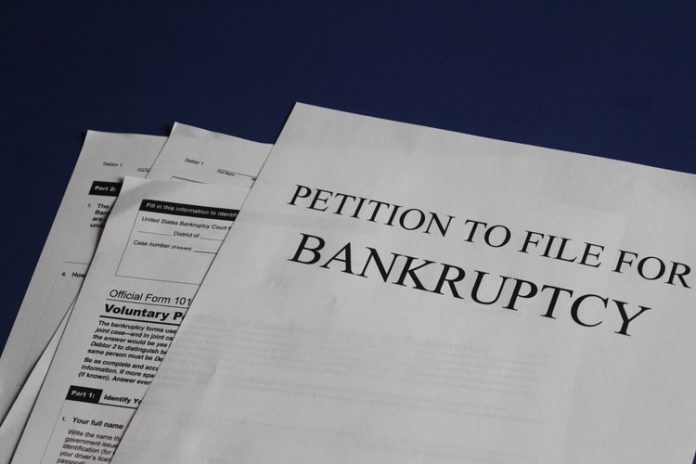This article has been written by Aniruddha Deshmukh pursuing a Diploma in US Corporate Law for Company Secretaries and Chartered Accountants at LawSikho, and has been edited by Shashwat Kaushik.
It has been published by Rachit Garg.
Table of Contents
Introduction
The Insolvency and Bankruptcy Code (IBC) of 2016 is comprehensive legislation that aims to provide a unified framework for resolving insolvency and bankruptcy cases in India. Under the IBC, a regulatory ecosystem has been established to ensure effective implementation of the Insolvency Law (IBC). These regulatory bodies are responsible for overseeing the insolvency resolution process and protecting the interests of all stakeholders involved.
Regulatory bodies under IBC
The regulatory ecosystem framework is responsible for the effective implementation of IBC. This code stands on these four pillars.
Insolvency and Bankruptcy Board of India (IBBI)
The Insolvency and Bankruptcy Board of India (IBBI) is the key regulatory body established under the IBC. It is responsible for regulating insolvency professionals (IPs), Insolvency Professional Agencies (IPAs), Insolvency Professional Enterprises (IPEs), the voluntary liquidation process, and Information Utilities (IUs). The IBBI is responsible for framing and enforcing the rules, regulations, and guidelines for insolvency proceedings in India.
It also supervises the functioning of the Insolvency Resolution Professionals (IRPs) and monitors the progress of insolvency proceedings, viz., CIRP (Corporate Insolvency Resolution Process), liquidation process, partnership and individual insolvency resolution, and partnership and individual bankruptcy. The IBBI simultaneously conducts quasi-legislative and quasi-judicial functions under the IBC, 2016.
Constitution of the IBBI
The Composition of the IBBI shall be pursuant to Section 189 of the IBC, 2016. The members of the IBBI shall be appointed by the Central Government, and their composition shall consist of the following members:
- A chairperson;
- three members from among the officers of the Central Government not below the rank of Joint Secretary or equivalent, one each to represent the Ministries of Finance, Corporate Affairs, and Law, ex-officio;
- one member nominated by the Reserve Bank of India (RBI), ex-officio; and
- five other members nominated by the Central Government, of whom at least three are fulltime members.
Powers and functions of the IBBI
According to Section 196 of the IBC, 2016, the IBBI has to exercise its functions as per the general directions of the Central Government. The IBBI mainly has the following powers and responsibilities:
- Provide regulation and assess processes and practises relating to CIRP, liquidation, individual insolvency and bankruptcy;
- registration, renewal, cancellation and regulation of service providers of the insolvency process, including IPs, IPAs, IPEs, and IUs;
- monitor performance and specify minimum eligibility criteria for the service provider;
- inspect and investigate on insolvency service providers and call for any records from them;
- ensure functioning and enforcement of regulation of the service providers and resolution process; and
- the Board may make model bye-laws to be adopted by the insolvency professional agency.
Adjudicating Authority (AA)
Adjudicating authorities under the Insolvency and Bankruptcy Code (IBC) 2016 are the bodies consisting of judicial and technical members as required, appointed by the Central Government, to exercise and discharge powers and functions provided under the Code. The IBC 2016 stipulates that there are two types of adjudicating authorities:
National Company Law Tribunal (NCLT)
The National Company Law Tribunal (NCLT), constituted under Section 408 of the Companies Act 2013, is recognised as an adjudicating authority under the Code. NCLT is a quasi-judicial body responsible for resolving corporate disputes related to the insolvency and liquidation of corporate persons. The NCLT admits the application to start CIRP and approves or rejects the resolution plan submitted by the CD. If NCLT rejects the plan, a liquidation order will be passed, following which the CD will be dissolved. The AA has power under IBC, 2016, to extend the CIRP period on applications filed by CD.
The National Company Law Appellate Tribunal (NCLAT) is the appellate authority for appeals passed by the NCLT under the Code. There are several benches located all over India with specific territorial jurisdiction over the state and certain other states.
Debt Recovery Tribunal (DRT)
The Debt Recovery Tribunal (DRT), constituted under the Recovery of Debts Due to Banks and Financial Institutions Act, 1993, is designated as an AA under Section 79 of the IBC, 2016. DRT recognises the insolvency of individuals (except the individual guarantor to CD) and partnership firms; however, the provisions of IBC relating to individuals and partnership firms have not yet been enacted. Hence, DRT doesn’t exercise jurisdiction as an AA under IBC, 2016.
Jurisdiction of adjudicating authority
IBC empowers the AA or NCLT to exercise jurisdiction and pass orders in insolvency and bankruptcy. No civil court or any other authority has jurisdiction over or can pass an injunction against the order of AA. Under Section 60 (5) of the IBC, 2016, The AAs shall deal with the following jurisdiction to contemplate or dispose of:
- Any application or proceeding by or against the CD or any corporate person;
- any claim made by or against the CD or any corporate person, including claims by or against any of its subsidiaries situated in India; and
- any question of priorities or any question of law or facts, arising out of or in relation to the insolvency resolution or liquidation proceedings of the corporate debtor or corporate person under this Code.
Appeal to the NCLAT or Supreme Court
The IBC provides any aggrieved person (CD or any corporate person) with a procedure for appealing against the decision of the AA. Under Sections 202 and 211 of the IBC 2016, The NCLAT will be the appellate authority to hear appeals against the order passed by the NCLT and any order passed by the IBBI.

An aggrieved person of the resolution plan, under the provisions of Section 61 of the IBC, can file an appeal against the order of the AA to the NCALT within 30 days from the date of receiving the order from the AA.
Section 62 of the IBC enables an aggrieved person to file an appeal against an order passed by the NCLAT to the Supreme Court of India within 45 days of receiving the order.
Information Utilities (IUs)
The insolvency proceeding critically required complete financial and other information on the corporate debtor with accuracy, up-to date and in a centrally organised database. The corporate creditor required reliable financial information about the corporate debtor to remove the information asymmetry IBC was mandated to create a regulated information industry called Information Utilities (IUs). IUs are registered and regulated with the IBBI under Section 210 of the IBC.
Practicalities and usefulness of IUs
IUs are responsible for maintaining and making available authenticated, high quality information about corporate debtor defaults and their debts. IUs play a crucial role in the process of CIRP; once IP is appointed, he needs qualitative financial information about CD. An IP will seek out as much information about the CD as quickly as possible. IBC Though this can be done in many ways, the IBC considers that the primary method of acquiring authenticated information should be through an IU.
The financial information database of entities can be established with consistent use of IUs, which create efficient infrastructure and offer credit. During the CIRP process, IP can seek information from IUs, which tends to reduce time and speed up procedures, enabling creditors to make better decisions.
Core services of IUs
IUs are responsible for maintaining correct and authenticated financial information about debts and defaults. They are mandated to provide core services such as:
- Acceptance of electronic submission of financial information;
- safe and accurate recording of financial information;
- authentication and verification of financial information; and
- providing access to information stored with them to specified persons.
Type of information maintained by IUs
An IU is repository of the financial information of debtor, and the IBC provides list of financial information under Section 3(13), such as;
- All records related to debts and incorporation of an entity;
- liabilities of a corporate debtor and corporate person when such person is solvent;
- all records of encumbered assets of debtors;
- instances of default made by person against any debt;
- all past records of financial statements includes; and
- any other specified information.
The availability of such pre-validated information, which is pre-validated, is beneficial in the insolvency resolution process as well as in advancing credit facilities by lenders to any person.
Insolvency professionals (IPs)
An Insolvency professional is one of the most important components of the IBC regulatory ecosystem. An IP is registered, licenced, and regulated by the Insolvency Professional Agency (IPA). The AA will appoint IRP and RP to proceed with the CIRP and act as liquidators in the liquidation process. All liquidation and/or CIRP processes are managed and administered by IP under the provisions of the Code.
Eligibility, qualification and experience
Eligibility: IBBI notifies eligibility conditions under Regulations 4 and 5 under the IP regulations. No individual is eligible to be registered as an IP if:
- Is a minor;
- is not resident in India;
- does not have the specified qualifications and experience;
- has been convicted of an offence punishable by a prison term exceeding six months, or for an offence involving moral turpitude, and a period of at least five years has not lapsed since the sentence expired. If a person has been convicted of any offence for which the prison term was seven years or more, he/she will not be eligible for registration at all
- is an insolvent yet to be discharged or has applied to be adjudicated as an insolvent;
- has been declared to be of unsound mind;
- is not a “fit and proper” person. There are three criteria for determining “fit and proper”:
- Integrity, reputation, and character;
- absence of convictions and restraining orders; and
- competence, including financial solvency and net worth.
Qualification: For enrolment with IPA, an individual should have passed the Limited Insolvency Examination and other pre-registration educational courses as may be required by the IBBI from an IPA.
Experience: For Professionals (Chartered Accountant, Company Secretary, Cost Accountant, or Advocate) having 10 years of experience, or graduates having 10 years of experience in the field of law, or Masters’ Degree holders/Post-Graduate Diploma holders in management having 10 years of managerial experience, or graduates having 15 years of managerial experience.
Registration
Insolvency Professional Agencies (IPAs) are the first regulators for IPs, responsible for registering new IPs and regulating their members as per the standard code of conduct, regulations, and framework provided by IBBI. IBBI provides detailed conditions under Regulation 7(2) of the IP Regulations for the registration of an IP. Eligible and qualified persons should enroll with IPA and obtain membership; they must also apply to IBBI for registration.
A person having membership in IPA and registered with IBBI as per IP Regulations can be appointed as an Interim Resolution Professional (IPR), a Resolution Professional (RP), a liquidator, or a bankruptcy trustee as per the provisions of IBC.
Conclusion
Insolvency laws were enacted in India to address the financial distress of businesses. The primary objective of the IBC, 2016, is to provide an effective framework to resolve issues with time-bond mechanisms through an effective Corporate Insolvency Resolution Procedure (CIRP). IBC enacted a framework of regulatory bodies that underpins the operationalization of insolvency legislation. Insolvency professionals (IP) are experienced professionals and are the most important component of the IBC ecosystem. The Adjudicating Authority (AA) resolves and oversees the insolvency process under the IBC, 2016. The IBBI has regulatory oversight over IPs, IPAs, IPEs, and IUs as per the provisions of IBC, 2016. The regulatory ecosystem is resolving cases through a transparent process, leading to faster recovery of dues for creditors.
References
- https://ibbi.gov.in/uploads/whatsnew/e42fddce80e99d28b683a7e21c81110e.pdf
- f3f8276285c27f2386cd2a4f19cad213.pdf (ibbi.gov.in)
- bb54a1ddf9a7cd75ab18b566a83c6370.pdf (ibbi.gov.in)
- Insolvency And Bankruptcy Code, 2016: A Critical Analysis (legalserviceindia.com
Students of Lawsikho courses regularly produce writing assignments and work on practical exercises as a part of their coursework and develop themselves in real-life practical skills.
LawSikho has created a telegram group for exchanging legal knowledge, referrals, and various opportunities. You can click on this link and join:
Follow us on Instagram and subscribe to our YouTube channel for more amazing legal content.
 Serato DJ Crack 2025Serato DJ PRO Crack
Serato DJ Crack 2025Serato DJ PRO Crack










 Allow notifications
Allow notifications


